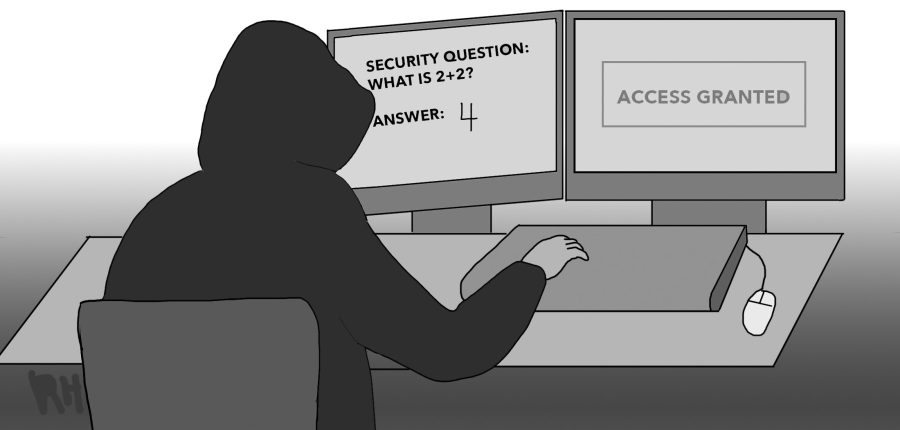When you Google the phrases “hacker” or “hacking,” you will generally see depictions of masked bandits surrounded by floating cryptic green text followed by hundreds of articles presenting the havoc they have caused. Hackers are depicted as modern bandits who, rather than using their abilities for the good of the people, use it to cause mayhem or to fulfill personal desires.
Hacking has certainly done harm, with cybercrime costs totalling anywhere between $375 to $575 billion annually, according to the Center for Strategic and International Studies. However, with the demonization of hacking, many ignore the blatant cybersecurity flaws that plague even the most basic infrastructures. Many governmental and corporate agencies utilize outdated security regulations that make them susceptible to modern hacking methods. When faced with a world that has become a lot more reliant on technological advances, securing cyberspace becomes a increasingly larger problem we have to face.
Perhaps one of the most infamous hacking cases in recent memory would be during the 2016 presidential election, where Russian hackers allegedly “sabotaged” candidate Hillary Clinton’s campaign through leaking private emails. Apparently, access of the information was gained through a phishing email that disguised itself as an e-mail login.
There should be no way a simple phishing email should be able to impact the presidential race and the political balance of our country, yet the results of the election have proved otherwise.
Additionally, it has also been discovered Russian hackers were able to gain access to ballots, publicizing sensitive voting information and going to delete voter data. Even though the lost votes did not impact any election, Russia receiving valuable voting intelligence may be detrimental to the United States The voting hack particularly demonstrated the key lack of security of government systems, with the hack’s potential mayhem being much worse than people thought it could be.
Despite this, the government avoids the cause of the problem in cybersecurity flaws and spends more resources prosecuting the perpetrators. SecurityScorecard, a company which provides security ratings for organizations, placed the government’s security at 16th out of 18 industries.
“There’s a lot of low-hanging fruit when it comes to the government sector overall. They’ll implement a technology when it’s very new, and then it’ll just sit there and age.This creates a mix of emerging technologies, which might be misconfigured, or not everything is known about them yet, with legacy technologies that have known vulnerabilities and exploitable conditions.”
Alex Heid
People who are able to crack into some of the most secretive documents can be among our world’s brightest minds. Aaron Swartz, a pioneer in the early stages of the internet, was involved in the development of Creative Commons and social media website Reddit, and was one of the primary voices working against the Stop Online Piracy Act, a law that would be able to censor some parts of the internet. However, as Swartz was caught accessing millions of JSTOR articles from the Massachusetts Institute of Technology database, he was sentenced to up to 35 years in jail and $1 million dollars in fines. He later hung himself at only 26-years-old.
Swartz was a victim to the demonization of hacking, especially during his trial against the United States. Harvard Law School professor Lawrence Lessig described Swartz’s treatment as “driven to the edge by what a decent society would only call bullying.” The government attacked those around Swartz while ignoring his mental instability as he showed signs of depression. In his case, he was not fully aware of the consequences of his actions, as all he did was mass download extraneous articles from a database he had legal access to.
Cybercrime cases like Swartz’s are more common than we think, and most of the time, the method of hacking is deceptively simple. As technologies begin to evolve, cybercrime becomes more complex, and monetary gain can easily eclipse moral concerns, especially in the eyes of certain hackers. The government needs to put more resources into protecting their own cyberspace rather than chasing every perpetrator.
“Political forces need to be marshaled to support and fund the many lines of research that will be needed to accomplish the complex task of protecting cyberspace from attack,” said the National Academy of Engineering.



